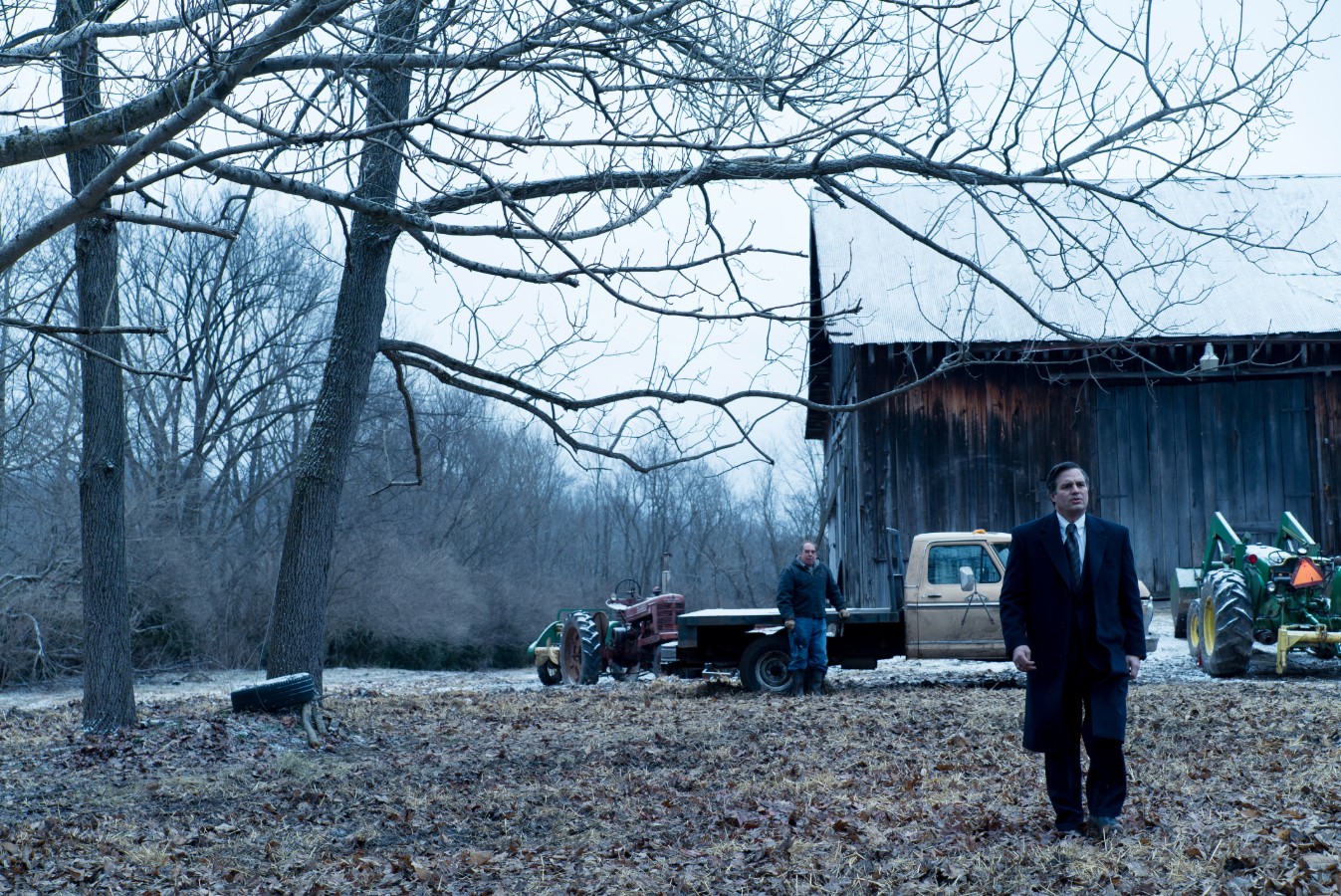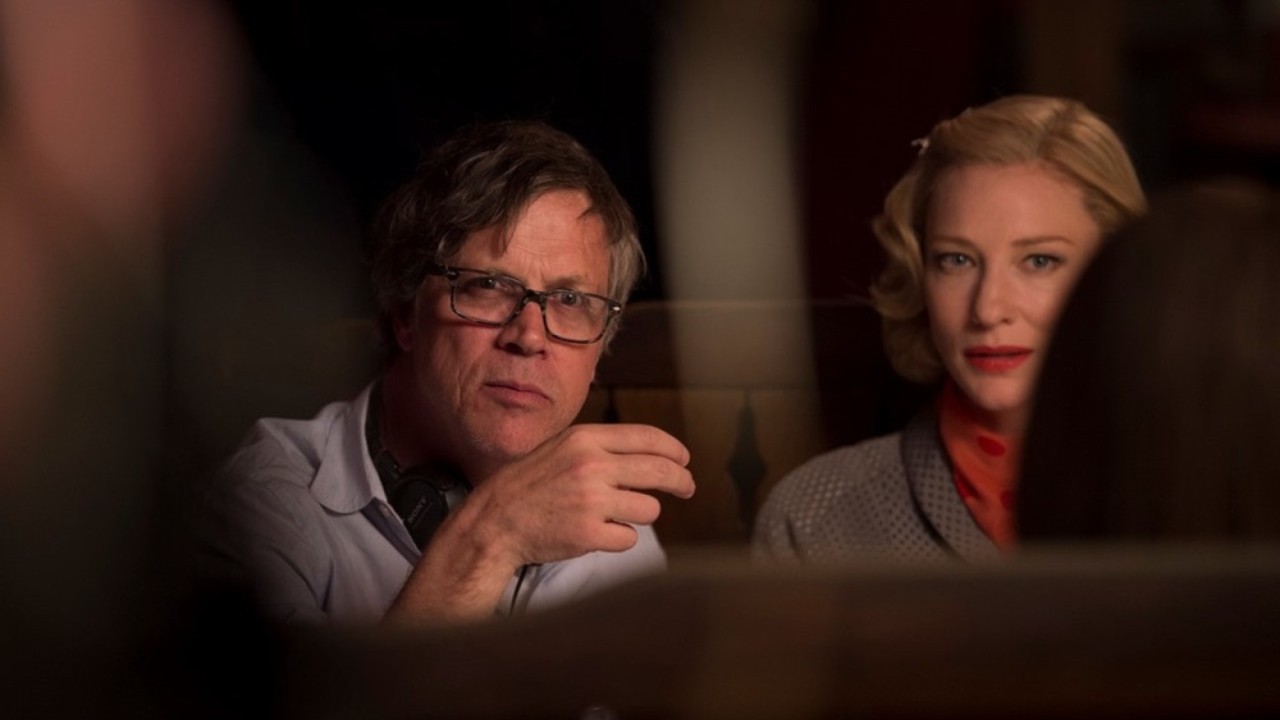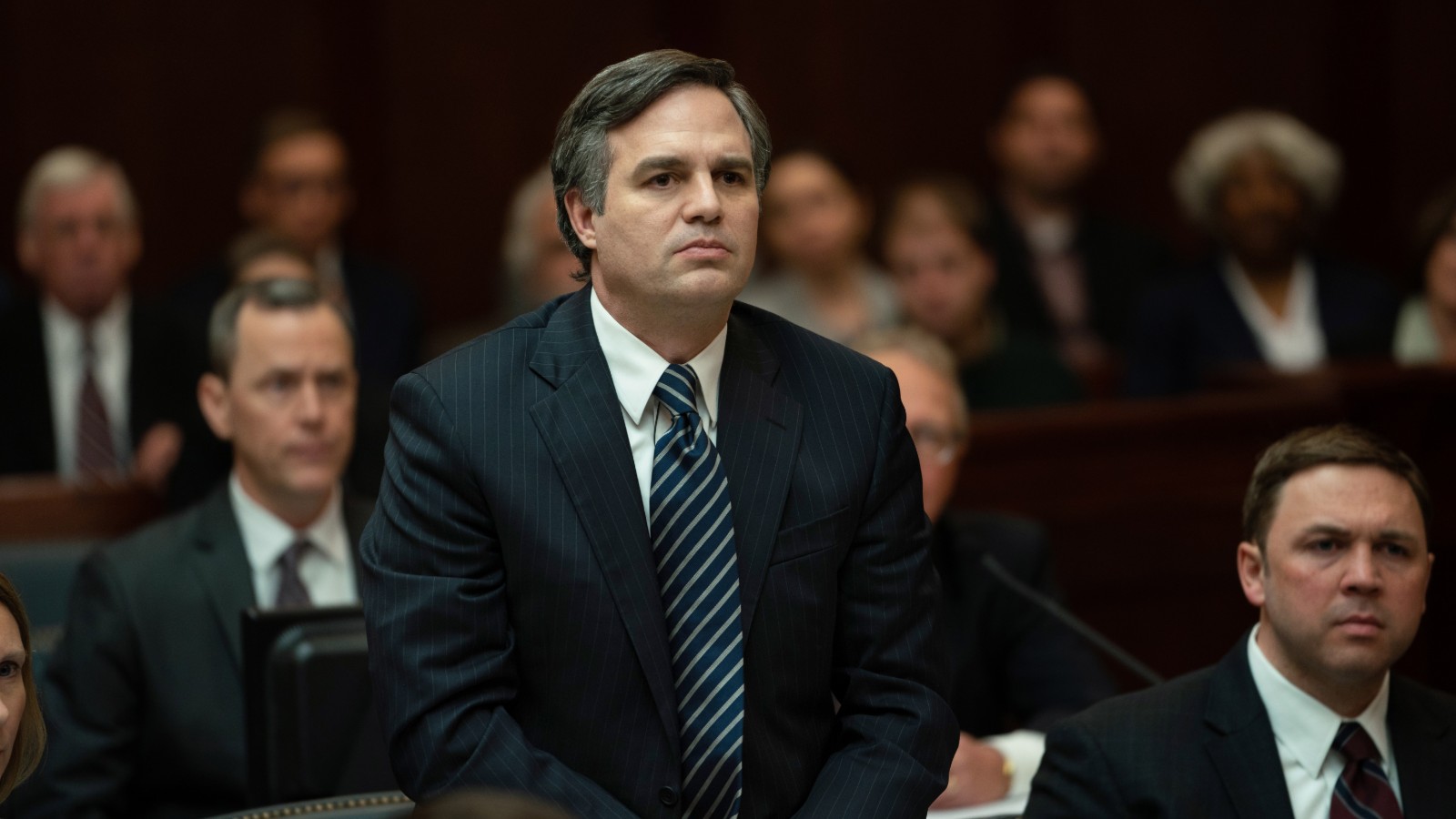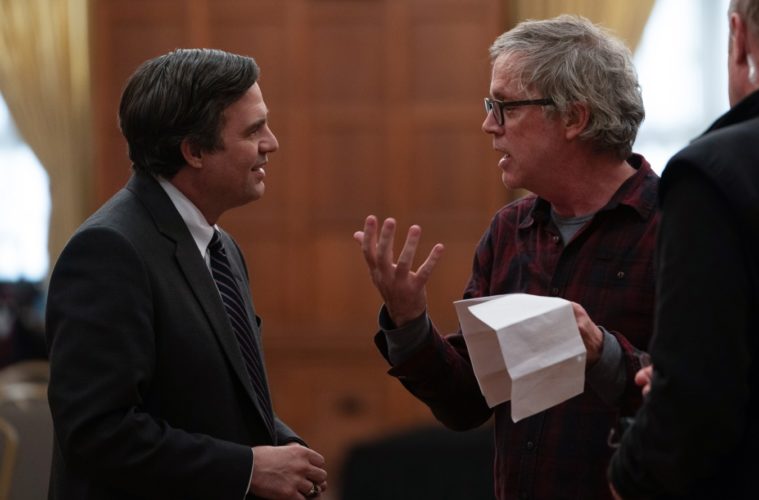Nearly a quarter-of-a-century ago, Todd Haynes released Safe, an impeccably crafted, startling drama in which Julianne Moore’s character is encumbered by “environmental illnesses” that she believes have debilitated her. Flash-forward to 2019 and the director is returning to a similar idea albeit on a much larger scale, in which 99% of the human population has been exposed to an environmental contaminant. And this time, it’s based entirely on a true story.
Dark Waters captures the extensive fight against chemical company DuPont headed up by corporate defense attorney Rob Billot (Mark Ruffalo). When the eco-thriller/drama was first announced, it perhaps looked strange in the hands of Haynes, who is known for his deeply felt, aesthetically vivid dramas, but he brings a distinct eye and a thematic richness to this story, one that exudes horror and outrage simmering under the surface.
“Todd Haynes understands that the justice system hardly ever works in such cut and dry terms,” Glenn Heath Jr. said in our review. “Highfalutin jargon and endless procedural bureaucracy render the judicial process intimidating and isolating for the very citizens it’s supposed to help. With Dark Waters, the rare biopic that refuses to embrace climactic closure, he elides sentimental and rousing conventions one would associate with courtroom epics.”
I spoke with Haynes about his clear-eyed direction, being inspired by Michael Mann’s The Insider, if the film could be considered a prequel to Safe, the use of John Denver in unexpected ways, subverting the legal drama, the response to Carol, the film’s thriller elements, and more.
The Film Stage: I was impressed by your direction here. Mark Ruffalo’s character is very calm, cool, and collected, and your direction mirrors that. You are always eye-level with him and you aren’t over-dramatizing anything.
Todd Haynes: Yes. Thank you for the question because it was intentional and something I weighed and discussed with my director of photography and production designer, because I felt like that kind of restraint and sort of observational… both the look and the rhythm to the movie, the distance the camera often takes from the subjects, really was a manifestation of Rob’s own sort of sensibility, character, and approach to the discovery he’s exploring and uncovering, as well as a kind of emotional coolness, both literally and figuratively, to the movie. What that also did, as opposed to fantastic movies that I just think are such consummate pieces of cinema, like The Insider by Michael Mann–which has an aggressively subjective style where you are just inside the almost myopic, shifting movements of the characters and their restlessness. Both films still describe a kind of alienation, but in very different ways.
This movie needed that sort of maneuverability, I think to not just reflect Rob’s temperament, but to also shift to other people in the story without whom this story would have never happened, and a kind of interdependency between characters, from Wilbur Tennant on the one hand to Tom Terp–who ends up becoming the managing partner at Taft Law–on the other. So you feel that there is this network and that we wanted to give space to each person’s place in the movie. So when Tom Terp ends his scene with the partners and says, “To hell with them!” or whatever, it’s the widest shot of our coverage in that scene. You could imagine punching right in for something like, but you really want to consider it in the context of these sort of institutional and corporate realms and what they mean to the entire system. This is a story about systemic problems across class and they don’t see the difference between class because they run through all of us like the water systems that link us.
I’m probably not the first person to bring this up, but I feel like Safe could almost be a microcosm of this story. Safe could be the prequel where we realize we are actually all infected.
Right. [Laughs]
Can you talk about if that was an initial hook at all, or how 25 years ago, when you were making Safe, this was happening but the public really didn’t know?
It’s funny. It’s coming from such a different place and sensibility, both stylistically for sure and because I really think it calls into question as much as anything it purports to be “true” in Safe. And really the focus of the film ultimately shifts from this question of environmental illness and chemical sensitivity to the ways our culture interprets illness–especially inexplicable illnesses or illnesses that we doubt the source of–and what a unique and almost brutal force is placed on the individual in those cases. Basically to say this is your doing and not the culture or the system or something.
[Dark Waters] is about revealing these shocking truths, if you will, and yet it is also about the costs of the individual, but from a very different standpoint. The cost of knowing it is true, how stigmatized the truth-teller can be in our society. In some ways, how toxic truth is to the status quo, which is so built on obfuscation and lies and deceptions that that is so their normal operating practices, that when you start to have a corrosive counterstory coming through… in some ways it’s amazing how vulnerable power is. Conspiracy theorists attribute such infinite powers to organizations of organized systems and big brothers and governments and power with a capital P, and actually you realize how brittle they are and how short-sighted they can be.

You use John Denver’s “Take Me Home, Country Roads” on the soundtrack. Two years ago a handful of films used it [Logan Lucky, Alien: Covenant, and the Kingsman sequel], but you use it in a very different way. It’s haunting as you are seeing the effect DuPont has on this community with their logo everywhere. You capture this small-town community really well and you are also seeing this unspoken fear running throughout. Can you talk about using that song in this way?
It was in the script and we wondered, “Is it too much? Does it bring too many associations? Are we being too cute with it?” But as we tried it out in the cuts, there was just something so bittersweet about it. There’s the minor chords in the song that we know so well, that play such a part in our childhoods, a sort of innocence and naivety. In a way, pop constructions like that summon up those feeling unencumbered. Well, in this context they play against something much more loaded.
I’m stating the obvious of what it does in the movie, but I think the final result is a kind of sadness. It’s not an ironic smirk, because you are watching this poor, sad town that is completely captive to the influences and the single-employer status of this massive company that of course invests in the public school system and in community events and in upping the town. It becomes a city fodder to this town, whether you work for DuPont or not. It’s inescapable. Its presence is everywhere. So I think, ultimately, we were all like, “Yeah, we’ve got to go there.”
I found it really interesting how you subvert the courtroom legal drama. Literally, when someone starts to grandstand, the judge says, “Stop it. Let’s move on to why we are here.” It feels like as a director, you are almost saying the same thing: “Let’s get through this so we can get to the more personal issues at hand.” Can you talk about courtroom dramas at large and trying to subvert them?
There was no single courtroom event. There were so many small trials in the course of this battle and so [co-writer] Mario [Correa] made the attempt to sort of dismiss the case and the introduction of the new safety standard, the public place that this would be presented, and that made sense and we had just introduced our courtroom attorney for the offense, the plaintiff’s side, in Harry Dietzler, Bill Pullman’s character. In a way there is some showboating in his fantastic, chewy performance. At that point in the film I think people are ready for it and enjoy it. It also shows the fundamental sort of constitutional land and somewhat not adversarial, but there is a real difference between the defense attorney’s style of practice and how they conduct themselves in a courtroom, and the plaintiff attorney, who is a showman and who moves at a much faster speed in turning over cases and wants to deal with getting the jurors to feel emotionally, as he describes in the scene right before, and it kind of rubs our guys the wrong way. Yet they are all on the same side.
So there are all these interesting differences among all of the people who are required to form a kind of codependent network in this story. And without almost any single element of that, it would not have happened. It needed all of these factors as well as other amazing, shocking events like the medical monitoring ruling that only appeared a year before in West Virginia law. Things that were just fortuitous. But it also needed a corporate defense attorney like Rob Bilott to have the time and the overhead and the discipline to spend that much time going through that much discovery. There’s no plaintiff attorney in the world who would have that kind of overhead to be able to sustain and pay for a process that would take that long. So you also had to have a defense firm that would have to greenlight it. So there’s too many things that lined up to make this story possible.
You are also returning to Cincinnati after shooting Carol there as New York City, but you are also able to capture the actual city for what it is. The buildings play such a massive part in this story.
We all had such a great experience there shooting Carol. I love the local talent, and the people we could get to work on our crews who were available and able were fantastic. There’s a real vitality to that city and a real independence to it and sense of its own integrity that I really respect, and you feel it in the comfort and the ease of the performers there. They immediately felt comfortable and on par with our better-known import New York actors that we brought in. And those actors so loved feeling immediately at ease with these local performers. But yes, it was such a different experience to be surrounded by the real places along with the real people. And all of the real people, beyond the actors who we cast as characters in the movie, we got to know intimately. The homes and the different spaces and places that our central characters lived in.
But then shooting in the Taft law offices brought something to the movie that I couldn’t have anticipated. Although the very first time I visited the space with Rob, on my very first research trip there in June 2018, I took a ton of photos and I don’t think he had the overhead lights on, so there’s all this cool window light in different-sized windows in this 1980s-style building, probably early-90s design, and sudden patches of incredible darkness in almost the same frame. And you almost felt that replicated as you looked out the window and you saw little pieces of the skyline interrupted by slats of obfuscation from neighboring buildings. So the whole thing felt like a game of hide-and-seek of visibility and discovery that felt like the perfect visual metaphor for what the movie is about. I would have picked that place as an aesthetic choice were it not the real place, and it was, and ultimately they let us do it, which was so great.

As the 2010s come to a close, many people are rightfully mentioning Carol as one of the best films of the decade. It has left such a special mark on so many people. Four years later, looking back on it, how has it aged for you as the director, and have you reflected on the response?
What’s so interesting about a lot of my movies is they generate their own discreet and unique followings. There are definitely people who know a lot of my films and like the breadth of my work, but then there are definitely people who are like, “I’m a Velvet Goldmine person and it made my whole life different when I saw it,” and the same for Carol. The Carol audiences are amongst the most passionate and witty, and it’s a bit more recently that that’s occurred for me. My dearest friends, my favorite people in the world, are my lesbian friends. So to have made a movie that touches lesbians–and other people, but particularly the lesbian community–young and old, here and there, really all over the world, it’s hard to overstate what that means to me.
At Film at Lincoln Center this summer, we actually did a free double feature of Velvet Goldmine and Her Smell, which Alex Ross Perry came to introduce.
Oh, my. That’s so crazy.
He was saying when he was making the film, this would have been the dream double feature. Have you seen Her Smell yet?
No, I haven’t seen it yet. That’s so awesome. How are they linked?
He liked your film because it uses cultural touchpoints without necessarily explicitly stating them. His film is very much like that. There are signifiers but it’s not a biopic.
So it’s not reality. It’s sort of playing with reality.
Yeah, about the punk scene.
Playing with a historical reconstruction of reality. That’s so cool.

Back to Dark Waters, the opening is kind of like Jaws without the shark.
God, man, we should get you on the marketing team.
[Both laugh] You can quote me.
What was the excitement of having these thriller elements threaded throughout? The story ends with the most shocking thing possible, that 99% of humans are infected. It really feels like a horror movie by the end.
Yes, and our underground garage scene which was true to Rob’s experience, but what was sort of an inevitable gesture towards the Deep Throat scenes in All The President’s Men. But yes, I was just like, “Start the movie in the dark water and have the water itself be the shark. Have the water itself be the villain.” Those are the kinds of things you can ideally do with a shorthand. I love that sense where the audience has cinematic fluency and these movies have become pillars of the way we see and think and reference our lives, so you don’t have to do much. It took very little. We didn’t have to overstate it. It’s sort implicit in the scene and we could make use of what people bring to it, which is cool.
Talking about the editing just a bit, you’ve worked with the same editor, Affonso Gonçalves, a few times. There’s such a distinct timeline in this movie, and as the years come up, it’s kind of a shock to the audience as you speed through. Did you know that structure right from the start?
We didn’t really have scripted where every year would be marked. Because so much more time is spent in the first two years of the case I wouldn’t have necessarily known that would work. But for that very reason, they start to accelerate in time and each segment is shorter. Then by the end you start to see them moving forward so you feel that inexorable sense of a weight being placed on the fragile shoulders of all the people involved. We know people are sick and they are dying, and Rob’s responsibility and his status at the law firm is diminishing, and his sense of security there. So the final act is a real trial.
Everything was a little longer in the script and the first cuts of the film, of course. There’s just so much information trying to squeeze into it, but I think we were able to make smart decisions. And Affonso Gonçalves, who I’ve worked with now since Mildred Pierce, is just such a great partner in so many ways, about a kind of instinctive, sensual approach to the sort of fluid, melodic experience of the film, and then a practical storytelling partner. It needed both because you wanted to maintain that sense of the human element, especially in times when you are several steps removed from the source.
Dark Waters opens in limited release on November 22.

